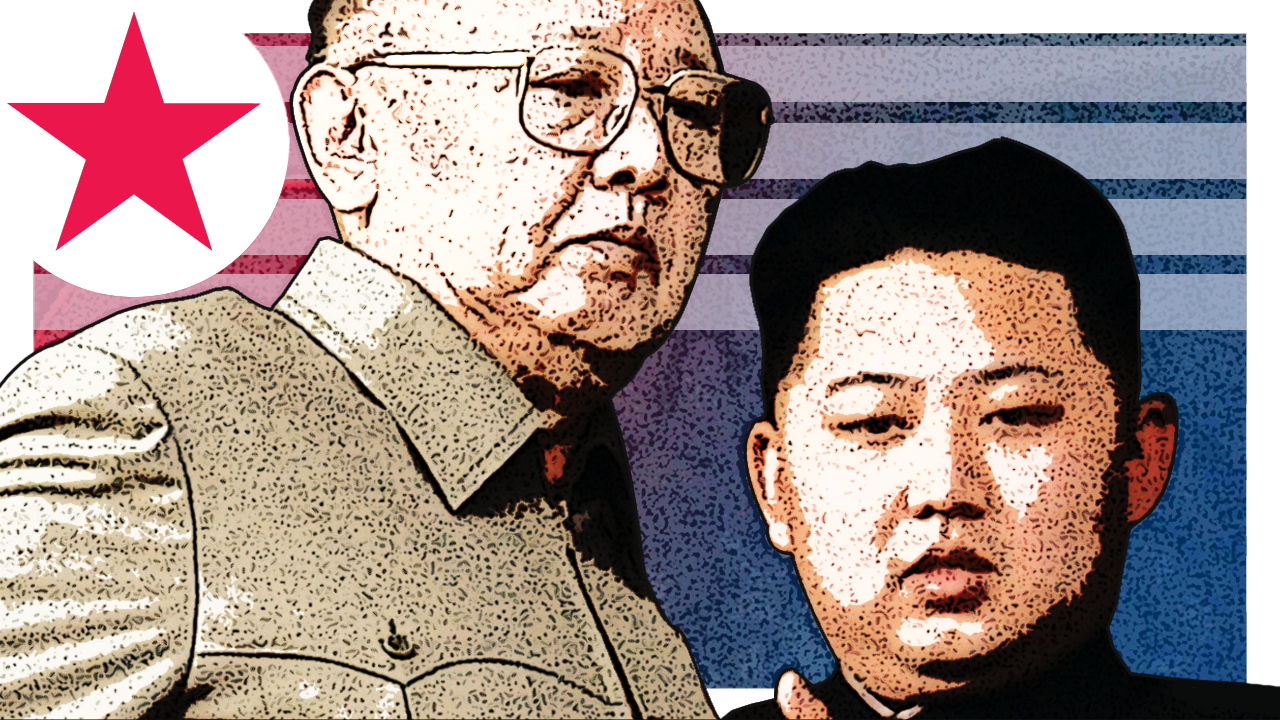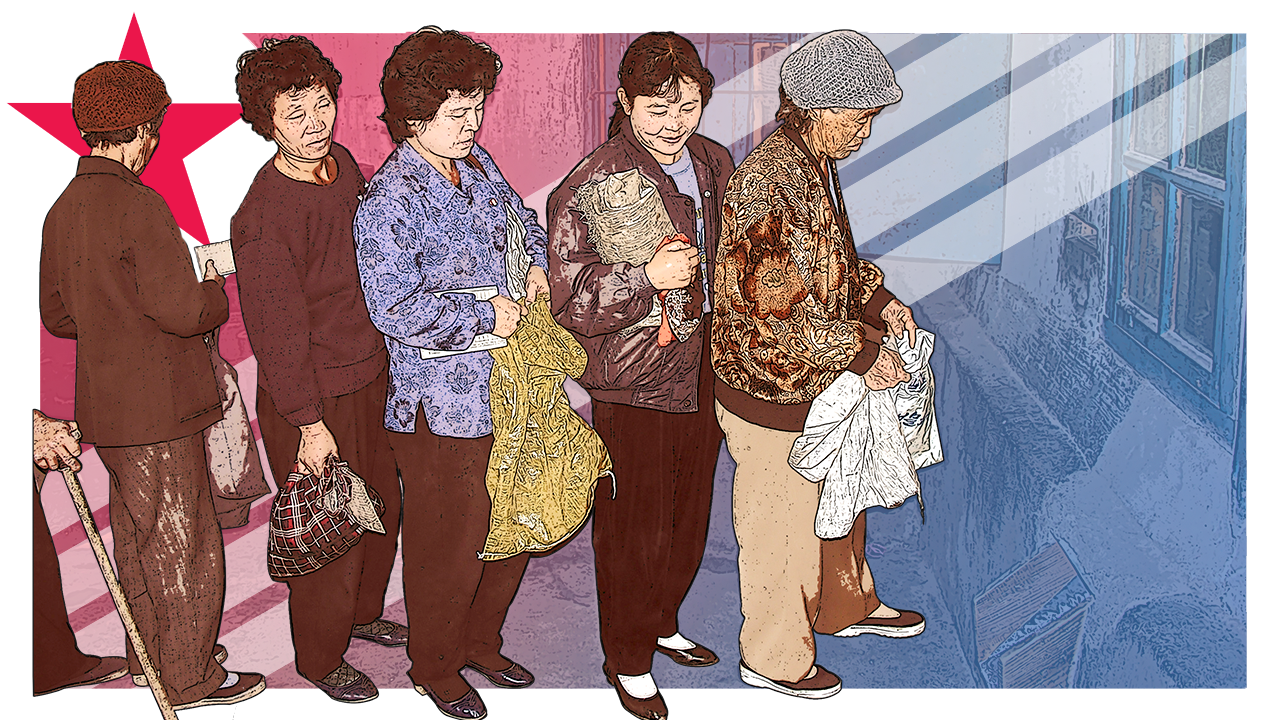
Kim Jong-un: N Korean defectors reflect on last decade
- Published By Chief Editor For The Statesman Digital
- 3 years ago
It's 10 years since an untested 27-year-old took power in North Korea and in that time few world leaders have generated as many headlines. But what has it been like living under Kim Jong-un?
The sound of wailing filled the streets of Pyongyang.
Students in their school uniforms fell to their knees and appeared inconsolable. Women were pictured clutching their hearts in despair.
The tightly controlled North Korean state media had announced that Kim Jong-il, their "dear leader", had died at the age of 69. It was 19 December 2011.
Around the world, Korean analysts rushed to their desks to pull out their files on one man.
Kim Jong-un.
He began with a purge of his rivals and hundreds of executions and then turned his attention to foreign affairs. Four nuclear tests, 100 ballistic missiles fired and the international spotlight at talks with the US president.
But his relentless pursuit of nuclear weapons has come at a cost. North Korea is now in crisis, poorer and more isolated than when he took power.
So what has it been like to live under him?
Ten North Korean defectors - including one of his top diplomats - reflect on 10 years of Kim Jong-un.
A new start
Student Kim Geum-hyok did something that could have got him shot the day Kim Jong-un's father died. He threw a party.
"That was so dangerous. But we were so happy at the time," he says.
For him, a young new leader, notably one who loved skiing and basketball, raised the prospect of fresh ideas and of change.
"We had expectations about Kim Jong Un. He had studied abroad in Europe, so maybe he would think in the same way as us," he said.

Geum-hyok was from an elite family and at the time was studying in Beijing, a privilege only a few are afforded in North Korea.
Life in China opened his eyes to a more prosperous world and he searched the internet for news about his home country.
"At first, I couldn't believe it. I believed Western people were lying [about what N Korea was like]. But my heart and my brain were divided. My brain said you don't need to look, but my heart wanted to look even more."
The 25 million people of North Korea are tightly controlled so most have little or no idea of world events, or how their country is thought of by the outside world.
They are also taught that the leader is a uniquely gifted and an accomplished divine being that deserves their ultimate fealty.
For Guem-hyok, the succession to power of this young man represented something that had been in short supply.
Hope.
The doubters
But others were sceptical. In the corridors of power in Pyongyang there were whispers that Kim Jong-un was a privileged child unfit to rule.
Ryu Hyun-woo, the former North Korean ambassador to Kuwait, told the BBC that his colleagues were exasperated by the leadership being passed from father to son.
"My first impression was 'sigh, another succession?' North Koreans were getting tired of hereditary succession. Especially among elites, we wanted something new and novel, 'Shouldn't something different come?' is what we thought."
The Kim family has ruled North Korea since it was formed in 1948. The country's people are taught that the blood line is sacred. It is a way of legitimising the dynasty.
"I heard things like, "so we're gonna serve the dearest forever, right?'
"What would a 27-year-old know in terms of running a country? It's absurd."
A promise
In a speech in 2012, the new leader pledged North Koreans would never have to "tighten their belts again".
For a country that had suffered a deadly famine in the 1990s which cost hundreds of thousands of lives, it seemed that their new leader wanted to end their food shortages and their suffering. It was a huge moment.

Foreign office officials were ordered to facilitate more international investments. And some within the country noticed changes too.
Driver Yoo Seong-ju from a province on the east coast of the country says he started noticing more things in supermarkets that had been made in North Korea.
"To our own surprise and pride, North Korean food products were actually better than Chinese ones in terms of taste, packaging and in supply. It was actually quite an ego boost."
The purge
Kim Jong-un's good wishes for his people did not extend to those he considered a threat.
In particular his uncle Jang Song-thaek had amassed a powerful network of allies.
Hundreds of miles from Pyongyang in the north of the country near the border with China, trader Choi Na-rae was wondering if Mr Jang could be the new leader of the country.
"Many of us hoped the country would open up with China and that we could travel freely abroad," he remembered.
"We thought if Jang Song-thaek would have succeeded in taking power, he would have brought a lot of economical change to North Korea. Of course we couldn't easily speak this out loud but we did have those expectations."
This kind of rumour had to be quashed.
Jang Song-thaek was labelled "human scum" and "worse than a dog" and then executed for allegedly undermining the "unitary leadership of the party".
The young leader was showing his ruthless streak.
Taking control
Dozens fled across the border to China and eventually to South Korea to try to seek refuge from the purge. Kim Jong-un decided to try to prevent further defections. Border security was tightened like never before. A barbed wire fence went up with traps on the ground underneath.
Ha Jin-woo managed to get around 100 people out of North Korea during his time as a broker.
Share on
SHARE YOUR COMMENT
MORE STORIES FOR YOU
Trending Stories
DJ Mo’s former illicit lo...
- Published By Jane
- January 15, 2024
Mapenzi! Zari and Tanasha...
- Published By Jane
- October 24, 2023
Zuchu Speaks on Diamond P...
- Published By Jane
- October 12, 2023
Hio Ni Upumbavu Wasituche...
- Published By Jane
- November 8, 2023
RECOMMENDED FOR YOU
How People are Using AI t...
- Published By The
- October 29, 2025
How Raila Odinga’s Death...
- Published By The
- October 29, 2025
What is Ayurveda? Raila O...
- Published By The
- October 29, 2025
Why Parents Should Spend...
- Published By The
- October 29, 2025
Latest Stories
ODM Formally Appoints Obu...
- Published By Jedida
- November 13, 2025
DCI Summon 4 Individuals...
- Published By Jedida
- November 13, 2025
Solo Activities that Buil...
- Published By Jedida
- November 13, 2025
Perfect Desk Tea For the...
- Published By Jedida
- November 13, 2025



